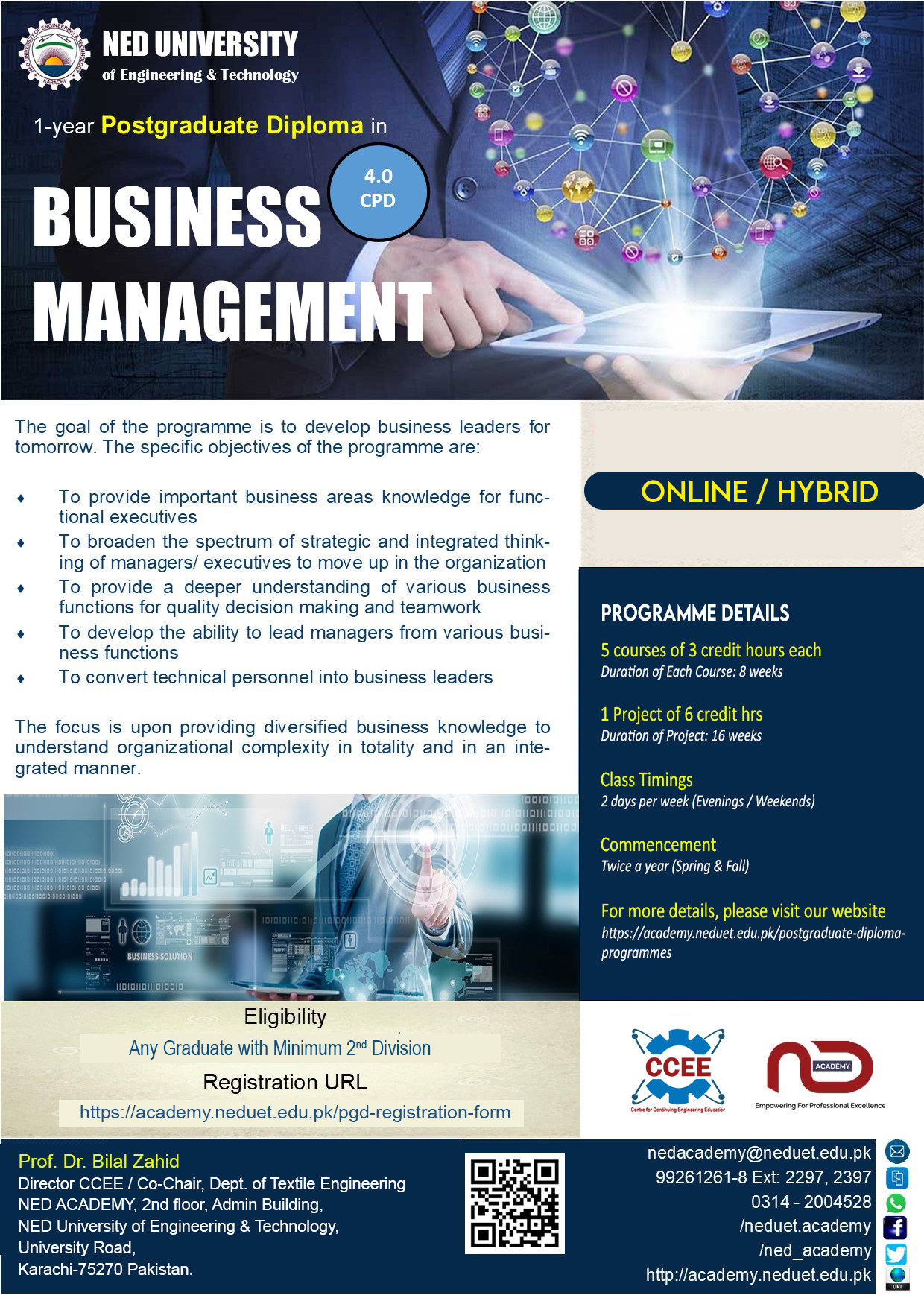ABOUT COURSE
Organizational Management
Evolution of management thought, classical, quantitative and behavioral schools; Interactions between organizations and their environments. The planning process; Strategic and tactical planning, developing planning premises, nature of managerial decision making, quantitative aids, management by objectives. Organizational structures; Behavior of the individual, work group, and organization; Coordination and spans of control, the informal organization; authority delegation and decentralization, groups and committees, managing organizational change and conflict. Motivation, performance and satisfaction; Building a high-performance team; Recruitment & staffing, Leadership, interpersonal & organizational communication, staffing and personal function. The control process; Budgetary and non-budgetary methods of control; Team performance measurement and improvement strategies. Use of management information systems.
Accounting and Financial Management
Basic financial statements: Income statement, balance sheet, statement of owners’ equity and statement of cash flows, The accounting cycle, Accruals and deferrals, Reporting financial results, Merchandising activities, The Inventory and the cost of goods sold, Depreciation of plant and intangible assets, Financial analysis of financial statements, Statement of cash flows, Costing & pricing, Operational budgeting, Foundations of finance with applications in corporate finance and investment management. Criteria for investment decisions, valuation of financial assets and liabilities, Relationships between risks and return.
Principles of Marketing
Marketing and Marketing Process, Analyzing Marketplace, Marketing Information System, Knowledge management systems in marketing, Understanding customer, Consumer Value, Business Market, New Product Development, Product Promotion, Distribution and Retailing, Pricing techniques, Market intelligence, Market research, B2B Marketing, Personnel Selling, Marketing strategies, Branding.
Strategic Planning and Decision Making
Critical issues in shaping the competitive strategy for engineering-driven companies in a turbulent business environment; Corporate mission; Key Result Areas and situational analysis including strengths, weaknesses, opportunities and threats; Identifying planning assumptions, critical issues, setting objectives, formulating strategy. Managing technology as a strategic resource of the firm; Understanding of the process, roles and rewards of technological innovation; Integrating the strategic relationship of technology with strategic planning, marketing, finance, engineering and manufacturing; Government, societal and international issues; Issues pertaining to cultural diversity and ethical concerns. Decision making techniques in management.
Supply Chain Management
Introduction to Supply Chain Management, Production Planning and Master Scheduling, Materials Requirement Planning, Capacity Management and Production Activity control, Forecasting and Demand Management, Products and Processes, Lean Production, Total Quality Management, Strategic Supply Chain Management, Re-Engineering of the Supply Chain, IT-Enabled Supply Chain, Decision Support Systems for Supply Chain Management, Data Mining and Data Warehousing in Supply Chain Management.


